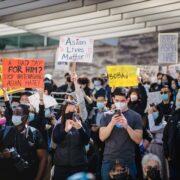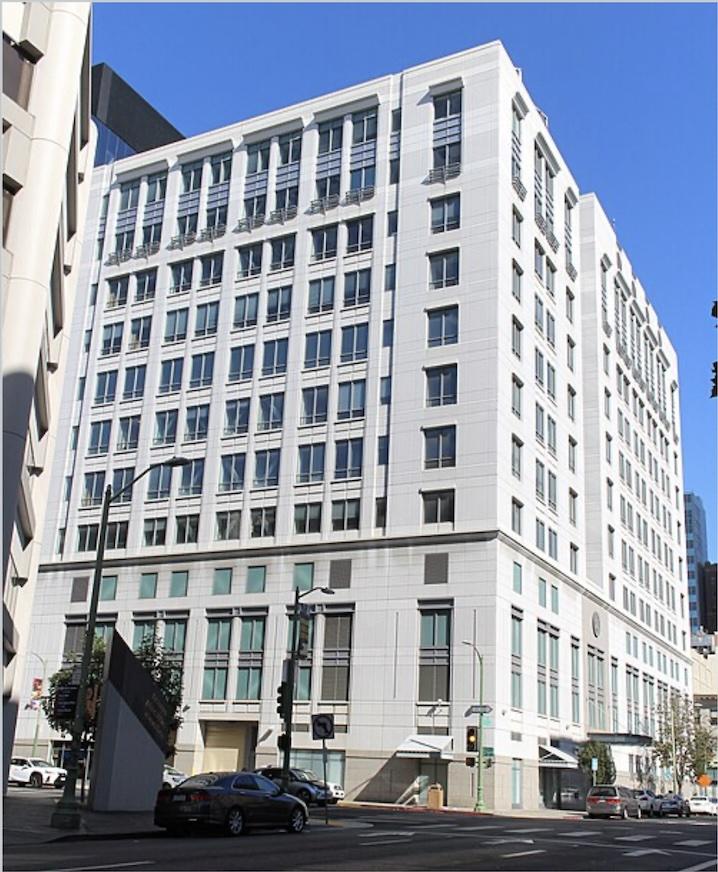CALIFORNIA Attorney General Rob Bonta has vowed to pursue broader and concrete measures to improve reporting system on racial-related hate crimes.
Bonta recently hosted a roundtable with Asian American and Pacific Islander (AAPI) press in the state to provide updates on his statewide initiatives in line with the celebration of this month’s AAPI Heritage Month.
As the first Filipino American attorney general of California and the second Asian American to occupy the post after now Vice President Kamala Harris, who served between 2011 to 2017, Bonta underscored the need to improve the way hate crimes are being handled, especially in California, a state home to nearly 6 million AAPIs.
A former state assemblymember, Bonta was first appointed by Governor Gavin Newsom as attorney general in March 2021, before being elected to a full term last November 2022. He was sworn in and delivered his inaugural address in Sacramento last January 6.
During the discussions with AAPI reporters, the state’s chief legal counsel said that amidst the alarming and continuing rising level of anti-Asian hate crimes over the past years, his office is very keen on implementing some definitive short-term and long-term programs to address these concerns.
He said short-term solutions may involve an immediate and effective way to resolve a hate crime as it happens.
“We need accountability for hate crimes when they occur and in my view charging hate crimes as hate crimes when elements are there and making sure that there’s an appropriate and proportionate accountability for those who commit hate crimes,” Bonta said.
According to Bonta, providing relatively prompt help to assist hate crime victims could also be a part of a short-term scheme.
“We provide victims with the services that they need to heal in the way that they need for them to heal, could be trauma form of care, it could be culturally competent care, could be in-language care like programs and services that allow and assist and expedite the healing of victims,” he said.
For long-term solutions, he said there is a need to implement a strategic plan of action involving education, cross-cultural awareness, and ethnic studies.
The government official also admitted that pushing for solid steps in tackling hate crimes is tedious as it entails a more complex approach in terms of implementation and execution of legislative measures and law enforcement.
“We need to have a lot of guidance on this with local enforcement on how to identify, investigate and how to build a hate crime case when the evidence is there,” he said.
He likewise underscored the need for the active participation of all concerned individuals to have an effective reporting system for these hate crimes.
“We also need a reporting system that people consistently and in a high percentage participated so we could understand the problem, its nature, the hotspots, who’s been targeted, why, and we can get to, address the root process,” he said.
One main dilemma of coming up with an effective reporting system, he noted, is the victims’ inability to come out in the open.
“Not everyone reports. Some folks do not report to law enforcement because they do not trust the law enforcement. Some people don’t report because they could be retaliated against, for example, an undocumented individual victim of a hate crime may not want to report to law enforcement because they might be worried about any potential adverse immigration consequences and so the people will report when they think something might be done and they won’t be retaliated against,” he said.
Bonta called on community leaders and groups and social services agencies to assist his office in addressing these concerns.
“We need to create those systems but I think that largely lies with community groups who are trusted, who’ve earned the trust, who have deep roots and deep histories with communities like to Stop AAPI Hate, a lot of folks call them because of their reputation and they have good data that helps us understand the problem better,” he said.
Stop AAPI Hate, a coalition of community organizations that started in May 2020, tracks and responds to incidents of hate, violence, harassment and discrimination against the AAPI community.
Over the last two years, anti-AAPI hate crimes went up 107% followed by an additional 177% increase the year before. The next updated data on hate crimes will be released in coming months, Bonta said.
With this unprecedented rise of hate crimes, Bonta also spearheaded the creation of a Racial Justice Bureau a few weeks after assuming office in 2021.
“We want to take a very strong stance against the forces of hate to push back. So I created a Racial Justice Bureau to stand against racial justice in all its forms, including hate crimes, hate violence, hate incidents,” the attorney general earlier said.
Asked about the role of the Racial Justice Bureau and its goal, Bonta said “we created Racial Justice Bureau to call out racial injustice in the state of California in all its forms and we plan of fighting the ground and say we are going to fight the racial injustice and fight against the forces of hate, and organizations that are organized around hate and violate other people’s rights or commit crimes.”
“We’re going to take on racial injustice in our schools where our children were submitted to unfair disciplinary process, suspensions, expulsion, unwillful defiance, and discipline. So from children, to hate groups, to hate crimes to any civil rights issues where race and ethnicity are being used as a way to target to hurt or harm people, we will be involved and that’s our racial bureau has done,” he elaborated.
Putting up a Racial Justice Bureau, he said, would enable them to have a dedicated set of personnel within his office to facilitate and focus on racial injustices.
“It has taken resources from across our office and brought them into a team with a common goal to take on racial injustice. We are largely focusing on hate crimes given the environment and the landscape and the pain and hurt and the harm that Californians are suffering when it comes to hate crimes and so but it is to fight for racial justice and all its forms and what’s happening in California will define the work that we prioritize and what we do but right now what we do are on hate crimes,” he added.
Aside from hate crimes, Bonta also wants to address other equally significant and socially-relevant issues, such as human trafficking, housing access, home care affordability, education, elder abuse, reproductive freedom, gun safety, the rights of LGBTQ communities, climate change, and among others.
2026 plans
During the virtual media roundtable, when asked about his apparent plan to run for governorship in 2026, Bonta said right now his priorities are set on addressing critical concerns of the state.
“Quite a number of people are reaching out to me asking me to run, encouraging me to run, and for that, I am honored and flattered and humbled. I will make a decision about running for governor for 2026 but the time for that decision is not now. I am focused on my work and role as an attorney general now and at an appropriate time in the future, I’ll make a decision and it will be known,” he said.
Bonta, whose parents Cynthia and Warren are both advocates of social justice, was also asked by reporters if he has plans to meet Philippine President Ferdinand Marcos Jr. who will be in California in November this year.
“I would like to spend time with President Marcos at some point [and] have a dialogue. I am open to a son not being the father and trying a different course and being different and I know that if you share a name as he does, there are assumptions and presumptions,” Bonta explained.
The attorney general added, “I hope he’ll go in a completely different direction and free himself of the reputation of his father and be someone who can lift up the people of the Philippines who needed him so much, who are wrestling with so many challenges from poverty to inequality, to natural disasters and lack of necessary infrastructure, there are so much that can be done by a leader who loves their people and I hope he could be that leader.”
Bonta was also asked to comment on earlier reports about Marcos’ apparent plans to rewrite Philippine history.
“Part of being a good leader is building and working from the facts and the truth and not erasing the history. History is what it is — you can’t change it, you can’t go back and change it, but you can change where you go next,” he said.
“It is painful today when you erase the history of yesterday when people have been hurt, family members have been taken away, killed, tortured and then you say it didn’t happen, that is harmful today so that is not something any leader should be doing,” Bonta said. “Who knows when will I spend time with him, what our discussions will be but I hope I would have a productive discussion about how to move the Philippines forward and most importantly lift up every people of the Philippines.” n







